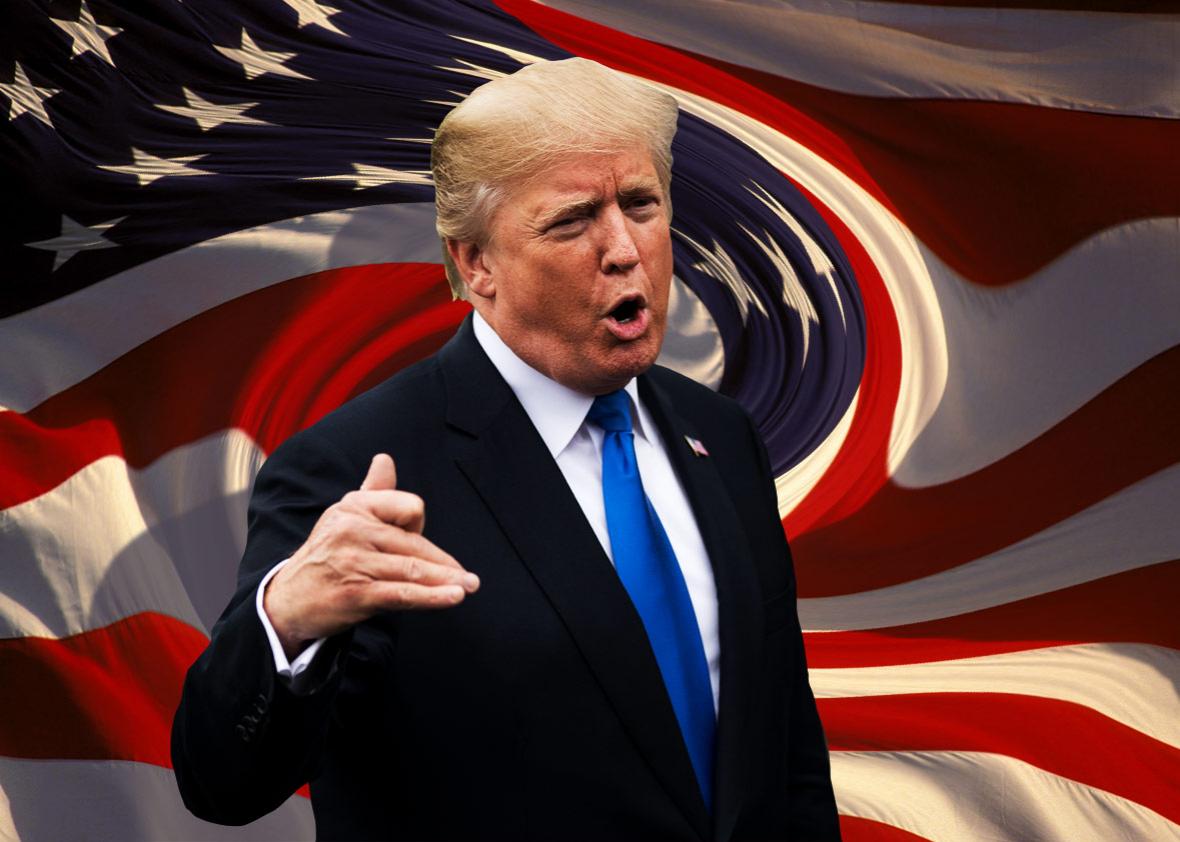When it comes to the promises they make, most elected officials hew close to their words. Given the scale and intensity of dishonesty in our politics, that seems counterintuitive. But it’s true. We couldn’t do democracy otherwise. How would one evaluate a leader whose rhetoric is untethered from his governance? How could one make an informed choice if what a politician says bears no relationship to what he’ll actually do? That kind of deceit would throw democracy into chaos.
Last week, President Trump took a major step toward accomplishing a key conservative policy goal—one that goes against what he has repeatedly said he’d do.
On Thursday, he cut off cost-sharing payments to health insurance companies, federal subsidies that compensate insurers for reducing certain expenses under the Affordable Care Act and help lower premiums for consumers. Ending these subsidies could cause chaos in insurance markets, pricing out some consumers while actually raising overall federal costs. Which is the point: Cutting the payments is part of a larger plan to “repeal” Obamacare through attrition and sabotage.
“With these actions,” explained Trump, “we are moving toward lower costs and more options in the health care market, and taking crucial steps toward saving the American people from the nightmare of Obamacare.”
None of this is true. By nixing Obamacare’s cost-sharing payments, President Trump will increase premiums by an estimated 20 percent, increase the number of uninsured Americans, and destabilize health insurance markets. In other words, there’s no relationship between what Trump said about his health care actions and what they’ll actually do. For that matter, there’s no relationship between his rhetoric on the Affordable Care Act—that it’s failing of its own accord—and the reality, which is that he is deliberately sowing discord.
More importantly, these actions cut directly against his vows as a presidential candidate. When pressed on his plans for health reform during the campaign, Trump repeatedly promised to provide cheaper, more comprehensive health care, and to defend Medicaid and Medicare from cuts. And those promises helped him win support from otherwise skeptical voters. Absent his pledge to expand health coverage and protect entitlements, Trump may never have won the White House.
This is the kind of lie that is uniquely dangerous. There are the lies told to avoid controversy and obscure scandal (“I did not have sexual relations with that woman”) and the lies told to sell an agenda to the public (“The tax cuts will pay for themselves”). These lies aren’t harmless—they corrode trust in government—but there’s a difference between these lies and the ones we’ve seen from Trump and his allies in the Republican Party. George W. Bush may have misled the public about his tax cuts, but he’d promised tax cuts. Barack Obama may have fibbed to reassure the public about his health plan (“If you like your doctor, you can keep it”), but he promised comprehensive health reform. Voters weren’t tricked or blindsided by the end goals. Even presidents who break promises made during the campaign, like George H.W. Bush and his “no new taxes” pledge, tend to do so in the open, with public deliberation.
In this way, President Trump’s lies on health care are different. In his disconnect between rhetoric and policy, Trump is an even more extreme version of traditional Republicans, like Sen. Majority Leader Mitch McConnell and House Speaker Paul Ryan, who won election after election by promising to replace the Affordable Care Act with a more generous set of health policies. They rode this promise to unified control of Congress, and upon winning this prize, immediately moved to undermine the entire project of universal coverage and public health insurance. When pressed on their efforts, they lied, selling vast cuts to Medicaid and other programs as efforts to secure and expand health coverage.
This is bait-and-switch politics, promising one thing in a cynical ploy for winning votes, only to disregard it upon taking office. And though this is never popular (as the low polling for ACA repeal this summer showed), it’s uncertain that Republicans will pay for it. Along with the aggressive effort to obscure the actual impact of key policies—to hide legislation from the public or paint massive Medicaid cuts as somehow favorable to the program—these are lies that make democracy difficult, if not impossible.
It’s not just voters who are suddenly faced with the task of sorting out false intentions, lest they elect lawmakers who pursue the opposite of what they promised. It’s everyone who participates in the public square, from activists and interest group leaders to the observers who explain and chronicle political life. Everyone is disadvantaged when politicians adopt the bait and switch, when their promises bear no relationship to what they do in office.
The Trump era of American politics is defined by constant cycles of outrage, each generated by a president who craves attention, even at the cost of notoriety. Often—as when the president defends white supremacists or uses the weight of the Oval Office against a private citizen—that outrage is justified, even necessary. His lying might seem minor in comparison. But it’s not. Like his corruption, Trump’s lying is something that actively harms democracy, opening the door to even worse abuses and raising further obstacles to renewal of democratic life.
